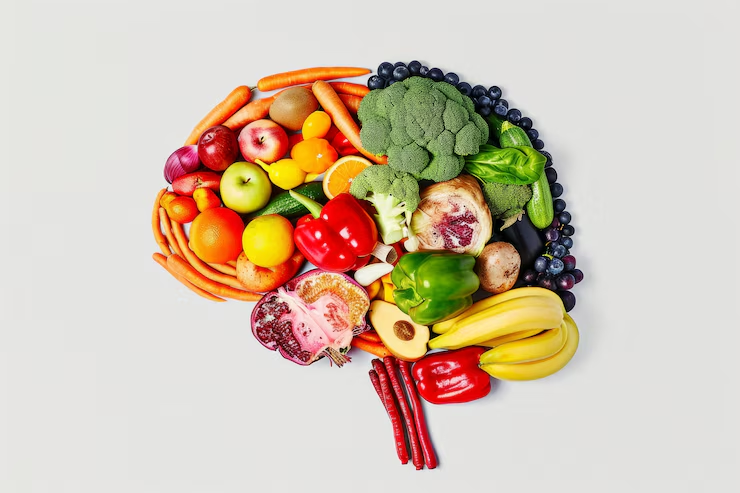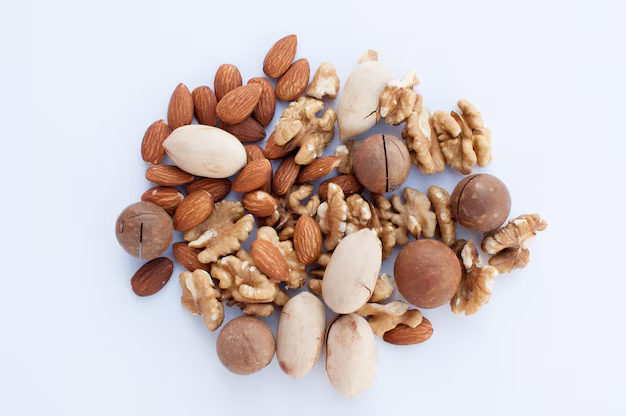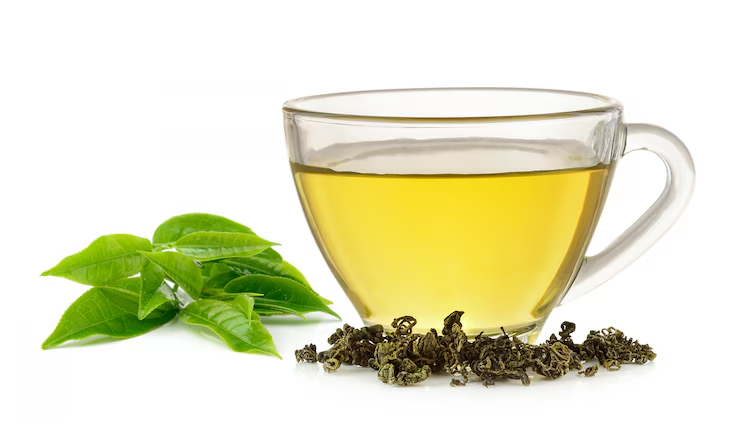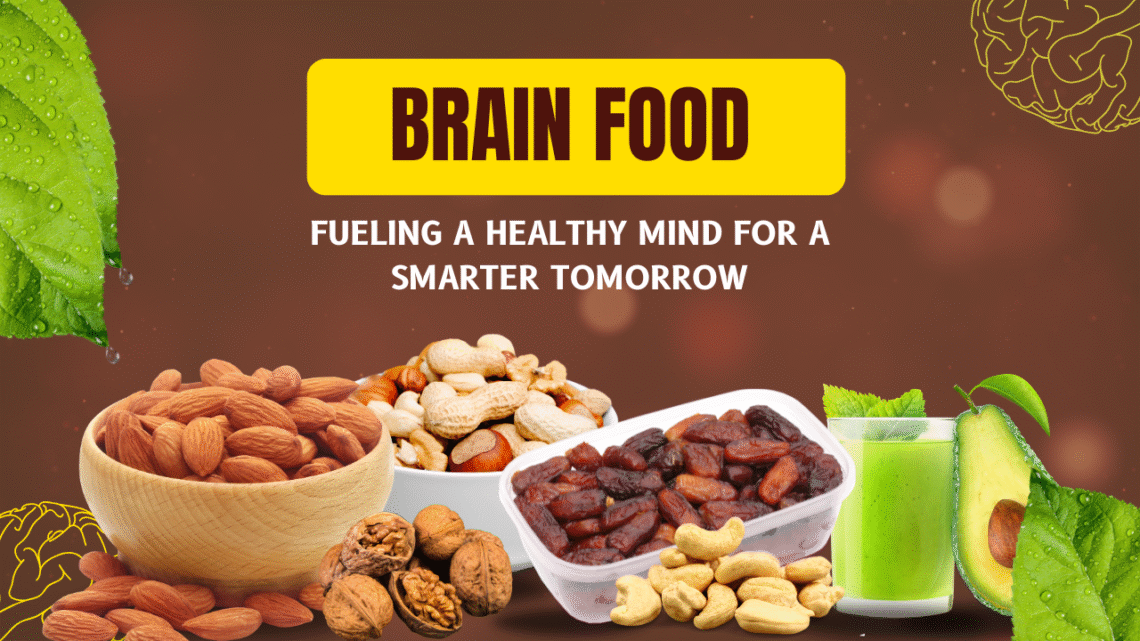Your brain is the command center of your body. It controls your thoughts, memory, emotions, touch, motor skills, breathing, temperature — essentially every process that regulates your body. To perform at its peak, your brain requires high-quality fuel. That’s where brain food comes in.
Just like your body, your brain needs specific nutrients to stay sharp, focused, and healthy. A diet rich in essential fatty acids, vitamins, minerals, antioxidants, and hydration plays a critical role in improving memory, focus, mood, and even preventing cognitive decline as you age.
This article explores what brain food is, why it’s important, what science says about it, and the top 8 brain foods and tips you can incorporate into your daily routine to ensure a healthy body and a healthy mind.
Brain food refers to nutrient-rich foods that support mental clarity, memory, and overall brain function. These foods supply essential vitamins, minerals, and healthy fats that nourish your brain and enhance cognitive performance. Including them in your diet helps maintain a healthy body and a healthy mind.
🧠 What is Brain Food?
Brain food refers to nutrient-rich foods that improve brain health, cognitive function, memory, and mood. These foods are typically high in omega-3 fatty acids, antioxidants, vitamins like B12 and D, and essential minerals such as magnesium and zinc.

Research has consistently shown that poor dietary choices can have a serious impact on brain health. Diets high in sugar, processed foods, and trans fats deprive the brain of essential nutrients, leading to decreased mental performance. Without proper brain food, your brain struggles to function efficiently, affecting memory, focus, and emotional stability.
These unhealthy eating habits can also contribute to inflammation and oxidative stress in the brain, which are linked to a higher risk of neurological disorders such as Alzheimer’s disease and depression. By replacing junk food with brain food, you can protect cognitive function and support long-term mental clarity, emotional well-being, and overall brain performance.
On the other hand, a balanced diet rich in brain-boosting nutrients can help:
- Improve memory and learning
- Sharpen focus and concentration
- Enhance mood and reduce stress
- Delay brain aging and neurodegeneration
🧠 Top 8 Brain Foods and Smart Eating Tips
Let’s dive into the top 8 foods and nutrition tips to keep your brain operating at full power.
1. Fatty Fish: The King of Brain Foods
Fatty fish such as salmon, mackerel, sardines, and trout are among the most powerful sources of brain food. These fish are packed with omega-3 fatty acids, crucial nutrients that support the structure and function of brain cells. Since nearly 60% of the brain is made of fat, and about half of that is omega-3, these healthy fats play a vital role in building and repairing brain tissue.
Omega-3s also help improve communication between brain cells, support memory, and reduce inflammation, which can protect against age-related cognitive decline. Including fatty fish in your weekly meals is a smart way to nourish your mind with high-quality brain food
🧪 Why It Works:
Your brain is nearly 60% fat, and half of that fat is omega-3. These fats are used to build brain and nerve cells and are crucial for learning and memory. Omega-3s also have anti-inflammatory properties and may help prevent Alzheimer’s disease and depression.
🧠 Tip:
Include two servings of fatty fish per week. If you’re vegetarian, opt for flaxseeds, chia seeds, walnuts, or algae-based omega-3 supplements.
2. Blueberries: Antioxidant Powerhouses
Blueberries are a powerful brain food, loaded with antioxidants and natural compounds like anthocyanins that directly benefit brain health. These antioxidants help combat oxidative stress, which can accelerate brain aging and impair cognitive function. What makes blueberries especially valuable is their ability to cross the blood-brain barrier and accumulate in areas of the brain responsible for learning and memory.
Regular consumption of this brain food has been linked to improved communication between brain cells, enhanced memory, and better mental focus. Blueberries also support long-term brain protection by reducing inflammation. Adding a handful of blueberries to your daily diet is a delicious and effective way to fuel a healthier mind.
🧪 Why It Works:
These compounds boost communication between brain cells, improve memory, and reduce oxidative stress, which contributes to brain aging and neurodegenerative diseases.
🧠 Tip:
Add a handful of blueberries to your morning oatmeal, yogurt, or smoothie for a tasty cognitive boost.
3. Dark Chocolate: Sweet Brain Booster
Dark chocolate, especially with at least 70% cocoa content, is a delicious and effective brain food. It contains flavonoids, caffeine, and powerful antioxidants — a unique combination that supports brain health and cognitive function. Flavonoids help increase blood flow to the brain, enhancing memory, learning, and overall mental performance.

Caffeine provides a natural energy boost, improving alertness and concentration, while antioxidants protect the brain from oxidative stress and premature aging. Eating small amounts of dark chocolate regularly can elevate mood and support long-term brain wellness. When consumed in moderation, this rich and satisfying brain food is both a treat and a natural way to sharpen your mind.
🧪 Why It Works:
Flavonoids accumulate in areas of the brain responsible for learning and memory, improving neural connectivity and blood flow. Caffeine enhances alertness and mood.
🧠 Tip:
Enjoy 1–2 small squares of high-quality dark chocolate as a mid-day snack, not as a dessert overloaded with sugar.
4. Leafy Greens: Nature’s Brain Shield
Vegetables like spinach, kale, collards, and broccoli are loaded with vitamin K, folate, beta carotene, and lutein.
🧪 Why It Works:
These essential nutrients found in brain food, particularly in leafy greens like spinach, kale, and broccoli, play a critical role in slowing cognitive decline and supporting the growth and maintenance of brain cells. Rich in vitamin K, lutein, beta-carotene, and folate, these vegetables help protect the brain from aging and oxidative stress.
Folate, a key component in many brain food sources, is especially important for maintaining mental clarity, emotional balance, and overall cognitive health. It aids in neurotransmitter function and reduces harmful homocysteine levels linked to brain degeneration. Including these nutrient-dense greens in your daily meals ensures your brain receives the fuel it needs for long-term wellness.
.🧠 Tip:
Add greens to salads, smoothies, soups, or stir-fried meals. The more color on your plate, the better.
5. Nuts and Seeds: Brain-Friendly Fats

Nuts, especially walnuts, are excellent sources of brain food due to their rich content of healthy fats, antioxidants, and vitamin E. These nutrients work together to protect brain cells from oxidative stress, which can damage cognitive function over time. The healthy fats found in walnuts, including plant-based omega-3 fatty acids, support brain structure and enhance cell communication.
Vitamin E, a powerful antioxidant present in many nuts, has been linked to slower cognitive decline and improved memory. Regularly including a small portion of nuts in your diet provides long-lasting brain nourishment. As a convenient and portable brain food, nuts are ideal for boosting mental performance throughout the day.
🧪 Why It Works:
Vitamin E has been linked to slower cognitive decline. Walnuts even resemble a brain in shape and are one of the richest plant-based omega-3 sources.
🧠 Tip:
Snack on a small handful of mixed nuts daily, or sprinkle them over cereals and salads.
6. Whole Grains: Long-Lasting Energy
Whole grains such as oats, quinoa, brown rice, and whole wheat provide glucose — your brain’s main fuel source — in a slow and stable form.
🧪 Why It Works:
Unlike refined carbs, whole grains offer a steady release of glucose, keeping you mentally alert and focused throughout the day.
🧠 Tip:
Swap white bread, pasta, and rice for whole-grain versions to enhance sustained energy and mental clarity.
7. Eggs: Nutrient Bombs for the Brain
Eggs are a powerful brain food, packed with essential nutrients that support cognitive health. One of their standout components is choline, a B-vitamin-like nutrient that plays a vital role in producing acetylcholine — a neurotransmitter linked to mood regulation, memory, and overall brain function.
Choline supports the development and maintenance of healthy brain cells, making eggs especially important for people of all ages. In addition to choline, eggs also contain B6, B12, and folate, which help reduce homocysteine levels associated with brain aging. Including eggs in your regular diet is a simple and effective way to fuel your brain with high-quality brain food that promotes clarity and mental focus..
🧪 Why It Works:
Choline improves mental performance and brain development. Eggs also contain B6, B12, and folate, which help reduce levels of homocysteine — a compound linked to cognitive decline.
🧠 Tip:
Include eggs in your breakfast to jump-start brain function. Boiled, scrambled, or poached — all are excellent choices.
8. Green Tea: Liquid Focus

Green tea is an exceptional brain food that offers a unique blend of natural compounds known to enhance mental performance and emotional balance. It contains caffeine, a well-known stimulant that boosts alertness, concentration, and short-term memory. Unlike coffee, however, green tea delivers a more balanced energy lift, thanks to the presence of L-theanine — an amino acid that promotes relaxation without drowsiness. Together, caffeine and L-theanine work synergistically to create a calm, focused state of mind.
Another brain-supporting element in green tea is polyphenols, which are powerful antioxidants that help protect brain cells from oxidative damage and inflammation. These compounds have been linked to a reduced risk of neurodegenerative diseases such as Alzheimer’s and Parkinson’s. The regular consumption of green tea has also shown promise in improving brain connectivity, memory retention, and overall mental agility.
As a natural and effective brain food, green tea stands out not only for its cognitive benefits but also for its calming properties, making it ideal for students, professionals, and anyone seeking mental clarity. Enjoying 2–3 cups daily can provide both immediate and long-term support for your brain, helping you stay sharp, focused, and mentally resilient throughout the day
🧪 Why It Works:
L-theanine increases alpha brain wave activity, helping you stay alert but relaxed. The polyphenols in green tea also protect against brain aging.
🧠 Tip:
Replace sugary drinks with 2–3 cups of green tea per day. Add a squeeze of lemon for added antioxidants.
🧠 Additional Brain-Boosting Strategies
Nutrition is the cornerstone of brain health, and incorporating the right brain food into your diet is essential for mental clarity, memory, and emotional balance. However, brain food works most effectively when combined with a healthy lifestyle. To truly optimize brain function, it’s important to support your nutrition with other smart daily habits.
Regular physical exercise boosts blood flow to the brain, encourages the growth of new brain cells, and enhances mood through the release of endorphins. Quality sleep is equally vital, as the brain consolidates memories and flushes out toxins during rest. Aim for 7 to 9 hours of uninterrupted sleep each night.
Stress management is another key factor. Chronic stress elevates cortisol levels, which can impair memory and shrink areas of the brain involved in learning. Mindful practices like meditation, deep breathing, or yoga can help regulate stress and protect your mental health.
Hydration also plays a crucial role in brain function. Dehydration can lead to fatigue, confusion, and reduced focus. Drink plenty of water daily and include hydrating foods like fruits and vegetables.
By combining nutritious brain food with regular exercise, stress management, quality sleep, and hydration, you create the ideal environment for long-term cognitive health and peak mental performance.:
🔁 1. Stay Hydrated
Even mild dehydration can have a noticeable impact on your brain’s ability to function at its best. When your body lacks sufficient water, it affects attention span, memory, and mental clarity. The brain depends on proper hydration to maintain energy levels, deliver nutrients, and remove waste. Without enough water, even the best brain food cannot work as effectively.
Drinking 8–10 glasses of water daily is essential for keeping your brain hydrated and functioning optimally. In addition to plain water, you can support hydration through brain food sources such as hydrating fruits and vegetables. Watermelon, cucumber, oranges, strawberries, and celery not only provide water but also deliver vitamins and antioxidants that nourish the brain.
Herbal teas like chamomile, peppermint, or green tea are also excellent for hydration and brain support. Green tea, in particular, contains compounds like caffeine and L-theanine, which improve focus and calm the mind, making it a powerful brain food beverage.
Staying well-hydrated enhances your brain’s ability to process information, make decisions, and maintain emotional balance. Pairing proper hydration with a diet rich in brain food is a simple but powerful way to boost your mental performance and overall cognitive health every day.
🛌 2. Get Quality Sleep
Sleep plays a vital role in maintaining brain health and enhancing the benefits of brain food. While you sleep, your brain is far from inactive — it works hard to consolidate memories, process information, and flush out toxins that accumulate during the day. This nightly maintenance is essential for cognitive function, emotional regulation, and long-term mental clarity.
Even with a diet rich in brain food, poor sleep can undermine your brain’s ability to perform. Studies have shown that sleep deprivation affects attention, decision-making, memory retention, and mood stability. Chronic lack of sleep may also increase the risk of neurodegenerative diseases such as Alzheimer’s and Parkinson’s.
To support optimal brain function, aim for 7–9 hours of restful, uninterrupted sleep each night. Establish a consistent sleep schedule, limit screen time before bed, and create a calming nighttime routine. Consuming brain food that contains magnesium (like almonds or leafy greens) and tryptophan (found in eggs or dairy) can help promote relaxation and improve sleep quality.
Combining quality sleep with brain food ensures your mind is fully recharged and ready to perform each day. This synergy between nutrition and rest forms the foundation for sustained mental energy, focus, and overall brain resilience.
🏃 3. Exercise Regularly
Physical activity is a powerful complement to brain food when it comes to enhancing cognitive health. Exercise doesn’t just benefit your body — it also plays a vital role in supporting your brain. One of the key advantages of regular movement is increased blood flow to the brain, which helps deliver oxygen and essential nutrients more efficiently. This circulation supports better focus, faster thinking, and improved memory.
Exercise also stimulates the release of brain-derived neurotrophic factor (BDNF), a protein that promotes neurogenesis, or the growth of new brain cells. This process is essential for learning, mental flexibility, and long-term cognitive performance. Even a simple 30-minute walk can have immediate benefits for mood, clarity, and concentration.
When combined with a diet rich in brain food — such as leafy greens, fatty fish, nuts, and berries — physical activity amplifies the brain’s ability to function at its peak. Movement boosts the absorption of nutrients from brain food and accelerates mental sharpness.
To support lifelong brain health, aim to include moderate physical activity in your daily routine. Whether it’s walking, yoga, dancing, or swimming, regular movement paired with brain food forms a powerful strategy for maintaining a sharp, resilient mind.
🧘 4. Manage Stress

Chronic stress increases cortisol, which shrinks brain areas linked to memory. Practice mindfulness, breathing exercises, or yoga regularly.
📚 5. Keep Learning
Just like the body needs exercise, the brain thrives on mental stimulation. Engaging in activities such as reading, solving puzzles, and learning new skills keeps your brain agile, sharp, and adaptable. These mental exercises challenge different areas of the brain, helping to improve memory, problem-solving, and creativity.
When combined with a diet rich in brain food, such as leafy greens, nuts, and fatty fish, cognitive activities become even more effective. Brain food provides the essential nutrients that fuel mental performance and support neuroplasticity—the brain’s ability to form new connections.
To maintain a healthy and active mind, pair daily learning with nutritious brain food for lasting cognitive vitality.
🧠 Brain Food and Mental Health
The gut and brain are connected via the gut-brain axis. Poor gut health can lead to mood swings, anxiety, and cognitive fog. Foods rich in probiotics (like yogurt, kefir, and kimchi) and prebiotics (like bananas, garlic, and onions) help nurture a healthy gut microbiome, which in turn supports brain function.
🧠 Brain Food for Kids, Adults, and Seniors
👶 Kids:
Growing brains need healthy fats, proteins, and complex carbs. Eggs, yogurt, berries, and nuts make great school lunch additions.
👨💼 Adults:
Busy schedules call for smart snacking. Keep nuts, fruits, and dark chocolate handy. Avoid skipping breakfast — it fuels morning mental function.
👵 Seniors:
Include brain foods that help preserve memory and delay cognitive aging, like leafy greens, fatty fish, and turmeric.
🧠 What to Avoid for Brain Health
Certain foods can harm your brain over time. Minimize or eliminate:
- Sugary snacks and beverages
- Processed meats
- Deep-fried foods
- Artificial trans fats
- Excess alcohol
- High sodium foods
These contribute to brain inflammation, poor memory, and mental fatigue.
🧠 Sample Brain Food Meal Plan
Here’s a simple daily meal plan loaded with brain-boosting foods:
Breakfast:
- Scrambled eggs with spinach
- Whole-grain toast
- Green tea
Snack:
- Handful of walnuts and blueberries
Lunch:
- Grilled salmon bowl with quinoa, kale, and avocado
- Glass of water with lemon
Snack:
- Dark chocolate square and herbal tea
Dinner:
- Stir-fried tofu or chicken with broccoli and brown rice
- Yogurt with flaxseed
🧠 Conclusion: Nourish Your Brain, Transform Your Life
A healthy body and a healthy mind begin with smart, consistent dietary choices that support long-term wellness. Just as a car runs best on premium fuel, your brain performs at its peak when it’s nourished with the right nutrients. Brain food, such as omega-3-rich fish, leafy greens, nuts, and berries, delivers the essential vitamins, minerals, and antioxidants your brain needs to function efficiently. These foods enhance memory, focus, mood, and overall mental clarity. By choosing brain food daily, you’re not just fueling your body—you’re giving your mind the tools it needs to stay sharp, resilient, and energized for life.
Eating brain food isn’t just about preventing disease; it’s about optimizing how you feel and function every single day. By embracing the tips and top brain foods shared above, you can supercharge your focus, lift your mood, and protect your memory for the long haul.
🧠 Final Quick Recap: Top 8 Brain Foods
- Fatty Fish 🐟
- Blueberries 🫐
- Dark Chocolate 🍫
- Leafy Greens 🥬
- Nuts and Seeds 🌰
- Whole Grains 🌾
- Eggs 🥚
- Green Tea 🍵
Start today. Eat smart. Think sharper. Live brighter.





